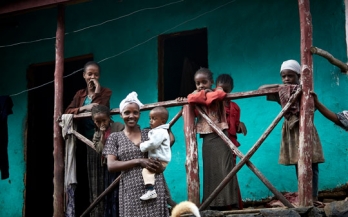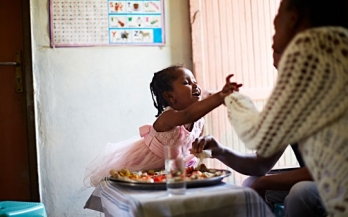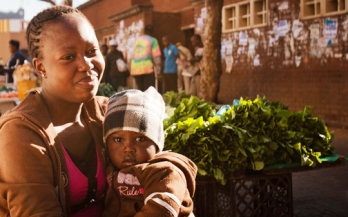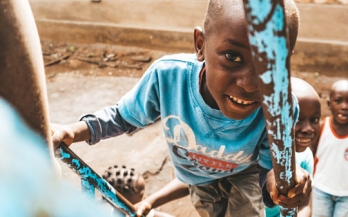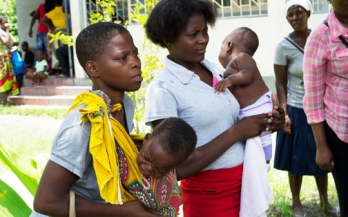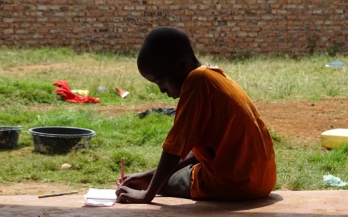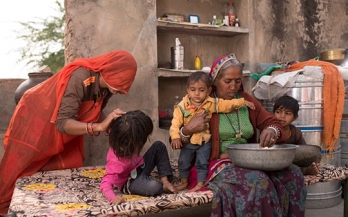This report presents the results of an evaluation using program impact pathway analysis approach to understand factors affecting program delivery and adherence to recommendations regarding micronutrient powders.
GAIN and its partnerships aimed to improve complementary feeding practices through the delivery of a micronutrient powder and behaviour change communication messages to approximately 71,000 children 6–23 months in Ethiopia’s Amhara region through the public health system.
GAIN and its partnerships aimed to improve complementary feeding practices through the delivery of a micronutrient powder and behaviour change communication messages to approximately 71,000 children 6–23 months in Ethiopia’s Amhara region through the public health system.
GAIN and its partnerships implemented a project aimed at improving the nutrient adequacy of infant and young child diets in three districts of Sofala Province, Mozambique. The results presented in this report are based on focused ethnographic study interviews with caregivers who participated in the program.
GAIN aimed at improving the nutrient adequacy of infant and young child diets in three districts of Sofala Province, Mozambique, through the delivery of micronutrient powder, called “VitaMais”, to children 6–23 months old and behaviour change interventions.
GAIN and its partnerships supported MISAU in the implementation of a home fortification project, which aimed to improve complementary feeding practices through the delivery of micronutrient powder and behaviour change communication activities to children in three districts of Sofala Province, Mozambique.
The Uganda Food Consumption Survey was undertaken to provide the critical body of evidence that policy makers and program designers need to make informed decisions about effective investments to reduce deficiencies of vitamins and minerals in Uganda.
This report reviews laws and policies covering the fortification of wheat flour in the Central Asian Republics of Kazakhstan, Kyrgyzstan, Tajikistan and Uzbekistan as well as Afghanistan and Pakistan, and also the fortification of edible oil in the latter two countries.
AP Foods’ approach to supplementary food production is a strong example of how GAIN’s nutrition partners learn from and use business-centered practices to achieve improved quality and efficiency within public sector or non-profit organisational contexts.
This assessment of the wheat flour milling industry in Tajikistan looks at the current picture of the flour produced and sold in the country and the existing fortification provisions, identifies gaps and challenges in the milling industry in relation to future fortification efforts, and presents recommendations to enact and implement legislation to enhance flour fortification and therefore the nutritional standards of the population.
